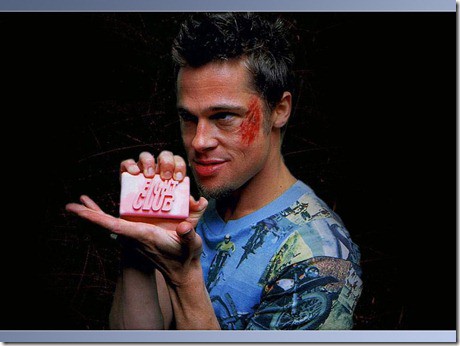I ran up against it again as I was trying to figure out the “right” way to build an android application.
Some of your coworkers probably don’t struggle with the issue because they really just don’t think about it that much.
But, if you are reading this blog, you probably have encountered the problem I am about to talk about. It may be for you, like it is for me, the single greatest thing holding you back.
What am I talking about?
The struggle with perfection
We want to build perfect software, we want to build perfect code, but it is just not possible.
Like Tyler Duren’s alter ego, we want to put everything in a nice little box.
I had mentioned earlier that not all software developers struggle with this problem. I think it arises when you start to actively seek to improve your development skills. It is natural to look for the “right” way to do something you want to get better at.
- There is a right way to swing a baseball bat.
- There is a right way to do mathematical calculations.
- You can play a piece of music perfectly on a piano.
But there isn’t a right way to build software.
There are lots of wrong ways, and then there are many better ways that all have trade-offs against each other.
It is vey hard to come to grips with this reality. At least for me it is. I want to know how I am supposed to do it and I don’t want to hear “any way you like”, or, “however seems right to you.”
Software development is part craft
There is some science to it. Don’t get me wrong.
The biggest problem in software development is not people struggling with perfection, but rather developers believing that there are no wrong ways to develop software.
You can learn what is right to some degree, up to a point. But, after you steer away from the obviously wrong, you end up drifting into the true craft of software development.
When you only have one tool, software development is easy. You just hack on things with your one tool. You might not be very effective or very efficient, and you may make a pretty big mess, but you generally can get things done and you know what to do.
When you have a toolbox full of tools, the world stops being so black and white. Software development truly becomes an art or craft at this point, as you are forced to make trade-offs and choose architectures and technologies based on experience and intuition combined.
Our minds fight against this concept of unrule. It is like playing monopoly with generalizations or ideas of how the game should be played, but no explicit rules. Sometimes life is just easier within preset boundaries that clearly tell us what is right and what is wrong.
It is a strange twist of fate that the act of building something that is absolutely structured and governed by rules is such a rule-less and judgment based pursuit.
Dealing with perfection in an imperfect world
So, why is striving for perfection bad anyway?
Well, it can be a major roadblock that prevents us from getting things done.
I’ll often find myself at the 90% better than I started solution and pushing to get to 95%. That push to 95% can take the same amount of time it took to get to 90%.
Sometimes when we are looking for the perfect architecture or trying to apply patterns because we believe they are right, we end up making things more complicated than they need to be, or we miss a better “less perfect” solution, because we have deemed it so.
One thing I have tried to do to curb my insatiable desire for perfection is to strive to always improve rather than for perfection itself.
It is important for us to recognize when we are at that 90% mark and move on.
Next time we encounter a similar situation we’ll hit the 91% mark because we will have more experience and will have built better intuition.
Here are some tips and strategies I have picked up for dealing with the problem of perfection.
- Try to get rid of the all or nothing mentality. Don’t do things just good enough to get by, but don’t try to do them perfectly either. Do an excellent job and know what that is.
- Start working on things in a rough draft form. Fill in details later. This especially helpful with web pages or anything that requires design work.
- Don’t get stuck on a problem that is mainly just polish. If the elegant way to do something is causing you 10 hours of debugging but you can do it in a less elegant way and hide the mess in a nice package, opt for the second. You can always come back later, when you don’t feel pressured to find a solution.
- Get a second opinion. If you are struggling with a design issue and going back and forth in your head about the best way to do something, ask someone else and it might make one way or another perfectly clear.
- Make yourself a research note. Move on for now, and make a note to come back later or to research a technology or design.

